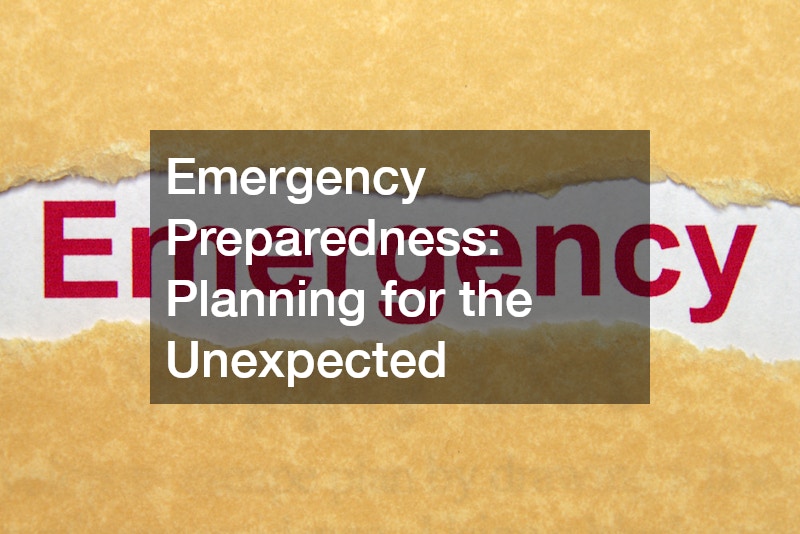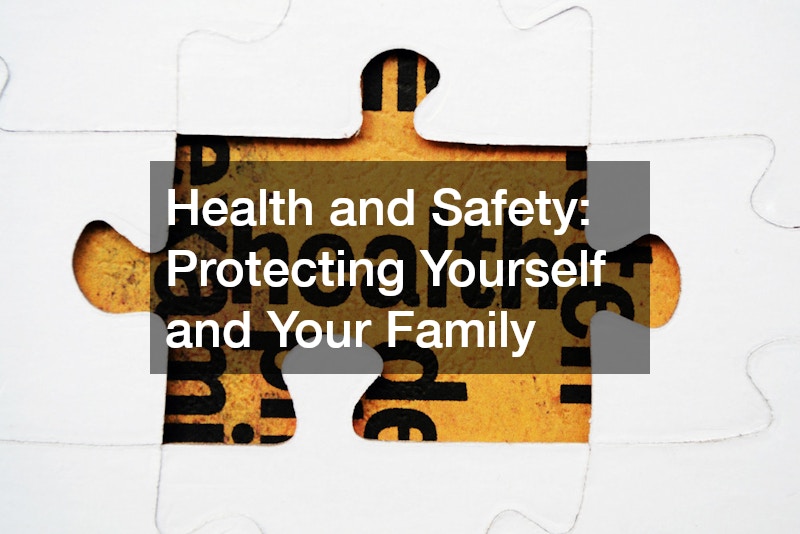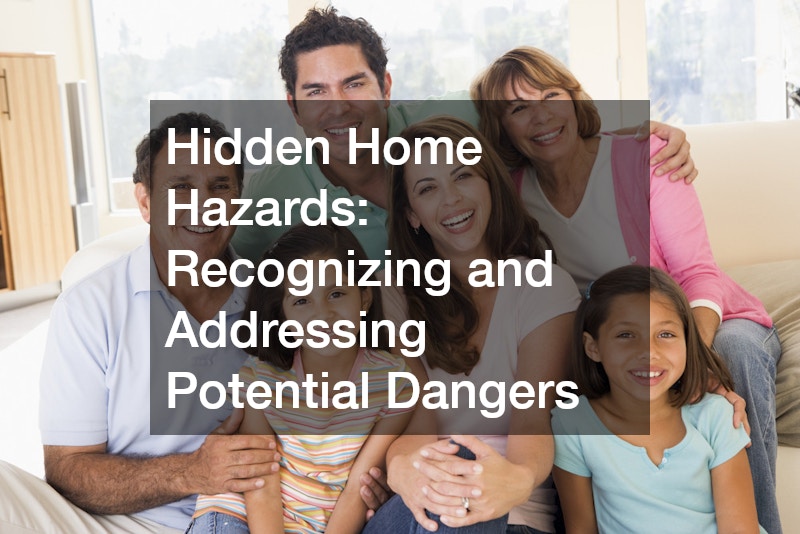Imagine a serene evening at home, only to be jolted by a sudden, sharp crack of thunder. As you rush to close windows, a flash of lightning illuminates a dark corner of your living room. To your horror, you see a small fire smoldering near an outlet. This near-miss could have turned into a catastrophic event, but luckily, you were quick to react.
This scenario highlights the importance of recognizing and addressing potential home hazards. While we often focus on the obvious dangers, many hidden threats lurk within our homes, waiting to strike. This article will explore common household hazards, provide practical tips for identification, and offer guidance on preventive measures and emergency response.
1. Silent Threats Within Your Walls

Water Damage: The Silent Destroyer
Water damage is a pervasive problem that can lead to significant structural issues, mold growth, and costly repairs. Early detection and prompt action are crucial to minimizing the damage.
Signs of Water Damage:
- Visible water stains: Look for dark spots on ceilings, walls, and floors.
- Mold and mildew growth: These fungi thrive in damp environments and can cause respiratory problems.
- Peeling paint: Water damage can weaken the bond between paint and the underlying surface.
- Musty odors: A damp, earthy smell often indicates water damage.
- Warping wood: Water can cause wood to expand and contract, leading to warping and buckling.
Causes of Water Damage:
- Leaky pipes and fixtures: Faulty plumbing can lead to slow leaks that may go unnoticed for extended periods.
- Roof leaks: Damaged or aging roofs are susceptible to leaks, especially during heavy rain or storms.
- Appliance malfunctions: Malfunctioning appliances, such as dishwashers and washing machines, can cause water damage if not addressed promptly.
- Flooding: Severe weather events, such as hurricanes and floods, can inundate homes with water.
Preventive Measures:
- Regular plumbing inspections: Schedule routine inspections by a trusted plumbing contractor to identify and repair any leaks or issues.
- Timely roof maintenance: Perform regular roof inspections, clean gutters, and repair damaged shingles.
- Prompt appliance repair: Address any appliance malfunctions immediately to prevent water damage.
- Installing water sensors and alarms: These devices can alert you to water leaks, allowing you to take action before significant damage occurs.
Electrical Hazards: Shocking Surprises
Electrical hazards can pose serious risks, including fires, electrocution, and property damage. It’s essential to be aware of common electrical problems and take steps to prevent accidents.
Common Electrical Hazards:
- Faulty wiring: Aging wiring can become brittle and prone to short circuits.
- Overloaded circuits: Plugging too many devices into a single outlet can overload the circuit and cause overheating.
- Damaged outlets: Worn or damaged outlets can pose a fire hazard.
- Exposed wires: Exposed wires can lead to electrical shocks and fires.
Identifying Electrical Problems:
- Flickering lights: This could indicate loose connections or faulty wiring.
- Discolored or warm outlets: Overloaded outlets may show signs of heat damage.
- Sparking switches: Sparks from switches are a clear sign of electrical problems.
- Circuit breakers that are tripping frequently: This could be caused by overloaded circuits or faulty appliances.
Safety Tips:
- Avoid overloading outlets: Use power strips or surge protectors to distribute the load.
- Use surge protectors: Surge protectors can protect your electronics from power surges.
- Schedule regular electrical inspections: A qualified electrician can identify and address potential hazards.
- Hire a licensed electrician for repairs: Never attempt to repair electrical issues yourself, as it can be dangerous.
2. Outdoor Threats: Protecting Your Property

Roof Repair: A Critical Component of Home Maintenance
A well-maintained roof is essential for protecting your home from the elements. Neglecting roof repair needs can lead to water damage, mold growth, and increased energy costs.
Signs of Roof Damage:
- Leaky ceilings: Water stains on ceilings are a clear indication of a roof leak.
- Missing or damaged shingles: Missing or damaged shingles can compromise the roof’s integrity.
- Sagging roof: A sagging roof may indicate structural damage or excessive weight.
- Water stains on walls and ceilings: These stains can be caused by water infiltration through the roof.
Preventive Roof Maintenance:
- Regular inspections: Schedule annual roof inspections to identify and address potential issues.
- Clearing debris from gutters: Clogged gutters can lead to water damage, so clean them regularly.
- Trimming overhanging branches: Overhanging branches can damage your roof during storms.
- Promptly addressing minor repairs: Small repairs, such as replacing a few shingles, can prevent larger problems.
When to Call a Professional Roof Repair Company:
- Extensive damage: If your roof has sustained significant damage, it’s best to hire a professional.
- Complex repairs: Certain repairs, such as replacing multiple shingles or repairing flashing, may require specialized skills.
- Safety concerns: If accessing your roof is dangerous, it’s advisable to hire a professional.
Tree Removal: A Risky Business
Trees can add beauty and value to your property, but they can also pose risks if not properly maintained. Dead or dying trees, trees with structural damage, or trees that are too close to your home or power lines may need to be removed.
When to Remove a Tree:
- Dead or dying trees: Dead or dying trees can become unstable and pose a safety hazard.
- Trees with structural damage: Trees with damaged limbs or trunks may be susceptible to falling.
- Trees that pose a threat to property or people: Trees that are too close to your home, power lines, or other structures may need to be removed.
Hiring a Reliable Tree Company:
- Research and reviews: Look for a reputable tree removal company with positive reviews.
- Licensing and insurance: Ensure that the company is licensed and insured to protect yourself from liability.
- Clear communication and contracts: Clearly communicate your needs and expectations, and review the contract carefully.
3. Emergency Preparedness: Planning for the Unexpected

Accidents and natural disasters can strike at any time, leaving us scrambling to respond. To minimize the impact of unexpected events, it’s crucial to have a well-thought-out emergency plan and a well-stocked emergency kit.
Essential Emergency Preparedness Steps
Develop a Family Emergency Plan:
-
- Evacuation Routes: Identify multiple escape routes from your home.
- Meeting Point: Designate a specific location where family members can gather after an evacuation.
- Emergency Contacts: Create a list of important phone numbers, including emergency services, insurance providers, and trusted neighbors.
Assemble an Emergency Kit:
-
-
- Basic Supplies: Stockpile essential items like water, non-perishable food, first-aid supplies, and medications.
- Important Documents: Keep copies of important documents, such as insurance policies, birth certificates, and passports, in a safe and accessible location.
- Emergency Lighting: Have flashlights, batteries, and battery-powered lanterns ready.
- Vehicle Emergency Kit: Equip your vehicle with essential items like jumper cables, a tire repair kit, and a first-aid kit. Regular auto service can also help prevent unexpected breakdowns.
-
Stay Informed:
-
-
- Weather Alerts: Monitor weather forecasts and heed warnings from local authorities.
- Emergency Alerts: Sign up for emergency alerts from your local government to receive timely updates.
-
By taking these proactive steps, you can significantly increase your family’s safety and resilience in the face of emergencies. Remember, preparedness is key to weathering any storm.
Fire Safety: A Lifesaver
Fires can spread rapidly, causing significant damage and endangering lives. Taking proactive measures to prevent fires and prepare for emergencies is crucial.
Fire Safety Tips:
- Install smoke alarms and carbon monoxide detectors: These devices can alert you to potential dangers.
- Create a fire escape plan: Develop a plan for evacuating your home in case of a fire.
- Conduct regular fire drills: Practice your fire escape plan to ensure everyone knows what to do.
- Store flammable materials safely: Keep flammable liquids and materials away from heat sources.
Fire Restoration Services:
- What to do after a fire: Contact your insurance company and document the damage.
- The importance of professional restoration: Professional fire restoration services can help mitigate damage and restore your home.
Sewer Backup: A Disgusting Dilemma
Sewer backups can cause significant damage to your home and health. By understanding the causes and taking preventive measures, you can reduce the risk of a sewer backup.
Causes of Sewer Backups:
- Clogged pipes: Clogs in your pipes can impede the flow of wastewater.
- Tree root intrusion: Tree roots can grow into sewer pipes and cause blockages.
- Heavy rainfall: Excessive rainfall can overwhelm the sewer system and lead to backups.
- Sewer line damage: Damaged sewer lines can cause leaks and backups.
Preventing Sewer Backups:
- Regular plumbing maintenance: Schedule regular plumbing inspections and cleanings.
- Avoiding flushing non-flushable items: Only flush toilet paper and human waste.
- Using a plumbing snake to clear minor clogs: A plumbing snake can be used to clear minor clogs in your pipes.
- Hiring a sewer backup service: If you experience a severe sewer backup, it’s best to hire a professional.
4. Health and Safety: Protecting Yourself and Your Family

Your home should be a safe haven, but there are potential health and safety hazards that can affect you and your family. By taking preventive measures and addressing issues promptly, you can create a healthier and safer living environment.
Emergency Dental Care: A Toothache Nightmare
Dental emergencies can cause significant pain and discomfort. It’s essential to know how to handle common dental emergencies and find a reliable emergency dentist.
Common Dental Emergencies:
- Severe toothache: Several factors, including tooth infection, tooth decay, and mouth injury, can cause severe toothache.
- Knocked-out tooth: Immediate medical attention is required to increase the chances of reimplantation.
- Broken tooth: A broken tooth can cause pain and sensitivity.
- Chipped tooth: A chipped tooth may not require immediate attention, but it’s important to see a dentist to repair the damage.
Finding an Emergency Dentist:
- Tips for finding a reliable emergency dentist: Look for a dentist who is experienced in handling dental emergencies. Check online reviews and ask for recommendations from friends and family.
- What to expect during an emergency dental visit: During an emergency dental visit, the dentist will assess your condition and provide appropriate treatment. This may include pain relief, tooth repair, or extraction.
Climate Control: A Comfortable and Healthy Home
A well-maintained HVAC system is essential for maintaining a comfortable and healthy indoor environment. Regular maintenance and energy-efficient upgrades for your climate control system can help improve your home’s energy efficiency and reduce your utility bills.
HVAC Maintenance:
- Regular tune-ups: Schedule annual tune-ups to ensure your HVAC system is operating efficiently.
- Filter replacement: Replace air filters regularly to improve air quality and system performance.
- Duct cleaning: Periodic duct cleaning can remove dust, allergens, and other contaminants.
Energy Efficiency Tips:
- Sealing air leaks: Seal any gaps or cracks around windows, doors, and other openings to prevent air leaks.
- Programming your thermostat: Use a programmable thermostat to optimize energy consumption.
- Using energy-efficient appliances: Choose energy-efficient appliances to reduce energy consumption.
5. Home Improvement Projects: DIY or Hire a Pro?

Home improvement projects can significantly enhance the value and functionality of your home. Whether you choose to embark on a DIY journey or enlist the expertise of a professional contractor depends on a variety of factors, including your skills, time, budget, and the complexity of the project.
While DIY projects can be rewarding and cost-effective, it’s important to assess your capabilities and the potential risks involved. For instance, electrical and plumbing work should generally be left to licensed professionals to ensure safety and compliance with local codes. On the other hand, tasks like painting, flooring installation, and minor landscaping can often be tackled by homeowners with basic skills and tools.
When considering hiring a professional, it’s crucial to choose a reputable contractor with a proven track record. Research potential contractors, read reviews, and request references from previous clients. A qualified contractor can provide expert advice, efficient execution, and quality workmanship.
Ultimately, the decision to DIY or hire a pro depends on your individual circumstances. By carefully evaluating your skills, time, and budget, you can make informed decisions that will lead to successful home improvement projects.
Shower Door Installation: A Glass Act
Installing a shower door can be a rewarding DIY project, but it requires careful planning and execution.
DIY or Hire a Pro?
- Factors to consider when deciding: Consider your level of experience, the complexity of the project, and the time and budget constraints.
- Tips for successful DIY shower door installation: Measure accurately, follow installation instructions carefully, and use high-quality materials.
- Hiring a Professional Installer: A professional installer can ensure a precise and watertight installation.
Garage Door Repair: A Heavy Lift
Garage door repair can be a challenging task, especially for those without experience. It’s important to identify the problem and determine whether you can fix it yourself or need to call a professional.
Common Garage Door Problems:
- Broken springs: Broken springs can make it difficult to open and close your garage door.
- Bent tracks: Bent tracks can prevent the garage door from moving smoothly.
- Faulty opener: A malfunctioning garage door opener can make it difficult to operate your garage door.
- Sensor issues: Faulty sensors can prevent the garage door from closing properly.
DIY Garage Door Repair:
- Basic maintenance tips: Regularly lubricate moving parts and inspect for damage.
- When to call a professional garage door repair service: If you encounter complex issues or safety concerns, it’s best to hire a professional.
Conclusion
By recognizing and addressing potential home hazards, you can protect your family, your property, and your peace of mind. Regular maintenance, timely repairs, and emergency preparedness are essential for a safe and healthy home. Remember, it’s always better to be proactive than reactive. Take the time to inspect your home, address any issues promptly, and be prepared for unexpected challenges.
By following these guidelines and seeking professional help when needed, you can create a safer and more secure home for yourself and your loved ones.
